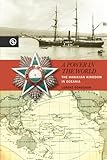A Power in the World : The Hawaiian Kingdom in Oceania / Lorenz Gonschor; ed. by Kieko Matteson, Anand A. Yang.
Material type: TextSeries: Perspectives on the Global PastPublisher: Honolulu : University of Hawaii Press, [2019]Copyright date: ©2019Description: 1 online resource (256 p.) : 11 b&w illustrations, 7 mapsContent type:
TextSeries: Perspectives on the Global PastPublisher: Honolulu : University of Hawaii Press, [2019]Copyright date: ©2019Description: 1 online resource (256 p.) : 11 b&w illustrations, 7 mapsContent type: - 9780824880019
- 9780824880187
- 995 23
- DU627 .G66 2019eb
- online - DeGruyter
- Issued also in print.
| Item type | Current library | Call number | URL | Status | Notes | Barcode | |
|---|---|---|---|---|---|---|---|
 eBook
eBook
|
Biblioteca "Angelicum" Pont. Univ. S.Tommaso d'Aquino Nuvola online | online - DeGruyter (Browse shelf(Opens below)) | Online access | Not for loan (Accesso limitato) | Accesso per gli utenti autorizzati / Access for authorized users | (dgr)9780824880187 |
Frontmatter -- Contents -- Acknowledgments -- Notes on Orthography and Translations -- Introduction: The Subtleties of a Map and a Painting -- 1. Reich Kamehameha's: Hawai'i's Special Place in the Pacific -- 2. "Not Only Permanently Independent but Powerful": Charles St. Julian and Early Pan-Oceanian Diplomacy -- 3. "To Advance as Polynesians" and "To Maintain the Status Quo in the East": The Internationalism of King Kalākaua and His Supporters -- 4. Ka Hoku o Osiania: A New Departure in Hawaiian Pan-Oceanianism -- 5. "Our Constitution Is Based on That of the Sandwich Islands": The Transfer of Hawaiian Institutions and Ideas -- 6. From "A Power in the World" to "Large Ocean States": The Legacy of Hawai'i's Pan-Oceanian Vision -- Epilogue: Why the Kaimiloa Both Precedes and Follows the Hōkūle'a -- Glossary -- Notes -- References -- Index -- About the Author
restricted access online access with authorization star
http://purl.org/coar/access_right/c_16ec
Few people today know that in the nineteenth century, Hawai`i was not only an internationally recognized independent nation but played a crucial role in the entire Pacific region and left an important legacy throughout Oceania. As the first non-Western state to gain full recognition as a coequal of the Western powers, yet at the same time grounded in indigenous tradition and identity, the Hawaiian Kingdom occupied a unique position in the late nineteenth-century world order. From this position, Hawai`i's leaders were able to promote the building of independent states based on their country's model throughout the Pacific, envisioning the region to become politically unified. Such a pan-Oceanian polity would be able to withstand foreign colonialism and become, in the words of one of the idea's pioneers, "a Power in the World." After being developed over three decades among both native and non-native intellectuals close to the Hawaiian court, King Kalākaua's government started implementing this vision in 1887 by concluding a treaty of confederation with Sāmoa, a first step toward a larger Hawaiian-led pan-Oceanian federation. Political unrest and Western imperialist interference in both Hawai`i and Sāmoa prevented the project from advancing further at the time, and a long interlude of colonialism and occupation has obscured its legacy for over a century. Nonetheless it remains an inspiring historical precedent for movements toward greater political and economic integration in the Pacific Islands region today. Lorenz Gonschor examines two intertwined historical processes: The development of a Hawai`i-based pan-Oceanian policy and underlying ideology, which in turn provided the rationale for the second process, the spread of the Hawaiian Kingdom's constitutional model to other Pacific archipelagos. He argues that the legacy of this visionary policy is today re-emerging in the form of two interconnected movements-namely a growing movement in Hawai`i to reclaim its legacy as Oceania's historically leading nation-state on one hand, and an increasingly assertive Oceanian regionalism emanating mainly from Fiji and other postcolonial states in the Southwestern Pacific on the other. As a historical reference for both, nineteenth-century Hawaiian policy serves as an inspiration and guideline for envisioning de-colonial futures for the Pacific region.
Issued also in print.
Mode of access: Internet via World Wide Web.
In English.
Description based on online resource; title from PDF title page (publisher's Web site, viewed 02. Mrz 2022)


